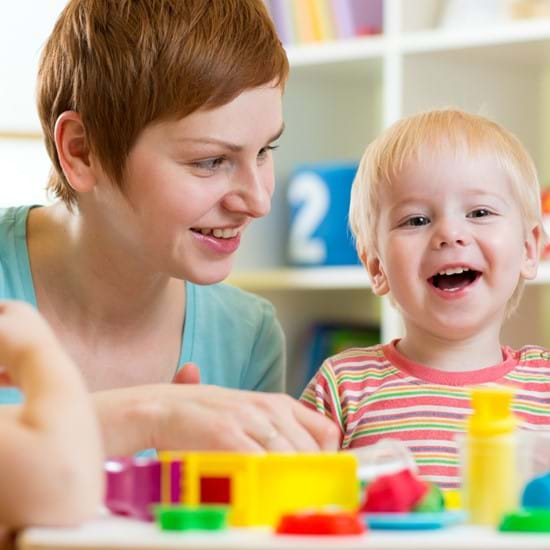
How to respond to bullying and cyberbullying?
The topic of bullying stirs up a lot of emotions, especially when our children are affected. We know that bullying can have long-term impacts on children, but there are effective ways to support them so that they can overcome this ordeal with their heads held high.
What is bullying?
Bullying is repeated, aggressive behaviour, usually deliberate, intended to cause distress, pain or fear to another person, either directly or indirectly. This behaviour puts the person who initiates it in a position of dominance. It can occur in many contexts, including at school, at work, online or in everyday life.
What are the different forms of bullying?
Verbal: insults, ridicule, hurtful comments, threats or spreading rumours to humiliate or denigrate the target of bullying.
Social: isolation, exclusion or manipulation of social relationships in order to disrupt the target person's interactions with others.
Physical: use of physical force to injure, threaten or intimidate someone, whether by hitting, shoving or other acts of physical violence.
Material: damage, destruction or theft of a person's property.
Online (cyberbullying): occurs via the Web, social networks, text messages or email. It involves sending hate messages or threats, or distributing humiliating photos or videos.
Sexual: harassment of a sexual nature, which may include inappropriate comments, unwanted advances, inappropriate gestures or sexual assault.
Would you like to know more about our coaching and healthy family life services offered with the Kaleido RESP? You will be able to take advantage of offers from Nanny secours to support you in your family life!1
How do I know if my child is being bullied at school?
It's important to distinguish between teasing and bullying. Teasing generally happens between two people who get along well, and the jokes go both ways. This type of interaction has no harmful effects if the words remain friendly. Bullying, on the other hand, is hostile behaviour directed at an individual, and includes a power relationship that causes them to suffer.
How do I support my child?
Given the far-reaching effects bullying can have on young people, it's essential to intervene quickly, but not impulsively. By demonstrating calm and confidence, you'll help your child feel secure.
- Listen to your child, offer them empathy and comfort, and reassure them if they need it.
- Don't immediately go into “problem-solving” mode. Instead, let your child express themself before you offer advice.
- Consult specialized, reliable resources to guide you, such as Kids Help Phone or Tel-jeunes.
- Ask your child to describe what happened. Take note of what they say so that you can present the events objectively to the school staff or parents concerned, if relevant.
- Help your child identify what they have power over in this situation. For example, a confident attitude may discourage bullies from seeking out vulnerable people.
- Teach your child to be assertive, without using violence.
- Invite your teen to hang out with caring friends. A person with a good friend network is less likely to be targeted by bullies.
- Contact your child's school principal or staff for help. By law, every school is required to have an anti-bullying and anti-violence plan. Partner with your child's team. If you don't feel supported, you can file a complaint with your school service centre.
Children who bully also need support to help them become aware of their behaviour and change it. The article "L’intimidation… On en parle, mais que faire?" from the Nanny Secours team suggests ways to help bullying children change their social behaviour.
Already a client? In your Client Space, visit "Accompanying Services" to take advantage of all the Nanny Secours offers and much more!1
What are the impacts of bullying and cyberbullying?
Bullying can have different effects on different people. Here are the most common:
- increased fear, anxiety or stress
- recurring physical symptoms, such as stomach ache, nausea or headaches
- low self-esteem
- feelings of guilt, shame, injustice or powerlessness
- depressive symptoms
- suicidal thoughts
- agitation
- difficulty concentrating
- loss of motivation at school, leading to repeated absences and dropping out
- explosive reactions, aggressiveness or delinquent behaviour
- disordered eating, weight loss or gain
- trouble sleeping
- isolation
If you observe these behaviours, don't hesitate to discuss them with your child, and then offer your support. If need be, call on professionals who are equipped to support your child's well-being.
Knowing that words have an impact on a person's state of mind, you may have noticed that the term "victim," often associated with helplessness, has not been used in this text. If your child is being bullied, make sure you give them back all the power they have by actively involving them in the process of resolving the situation.
Laury Boisvert, family coach and bachelor's degree in psychoeducation
Member of the Nanny Secours Network

This simple tool will help you calculate how much your child's postsecondary education could cost.
few secondes!
1. Certain conditions and restrictions apply. The promotions, benefits and other advantages of the accompanying services are subject to change without prior notice and may not be available in certain areas.



